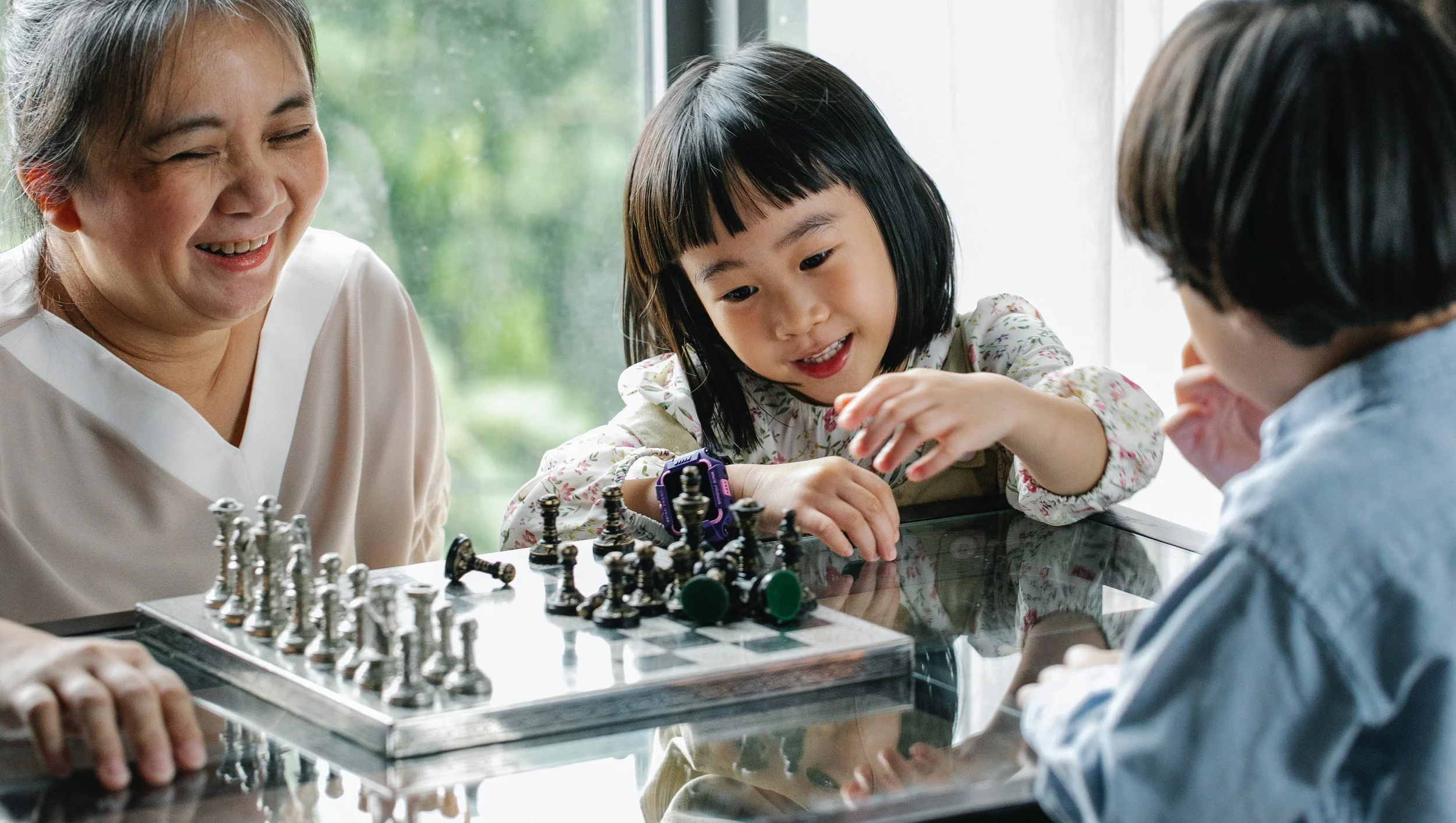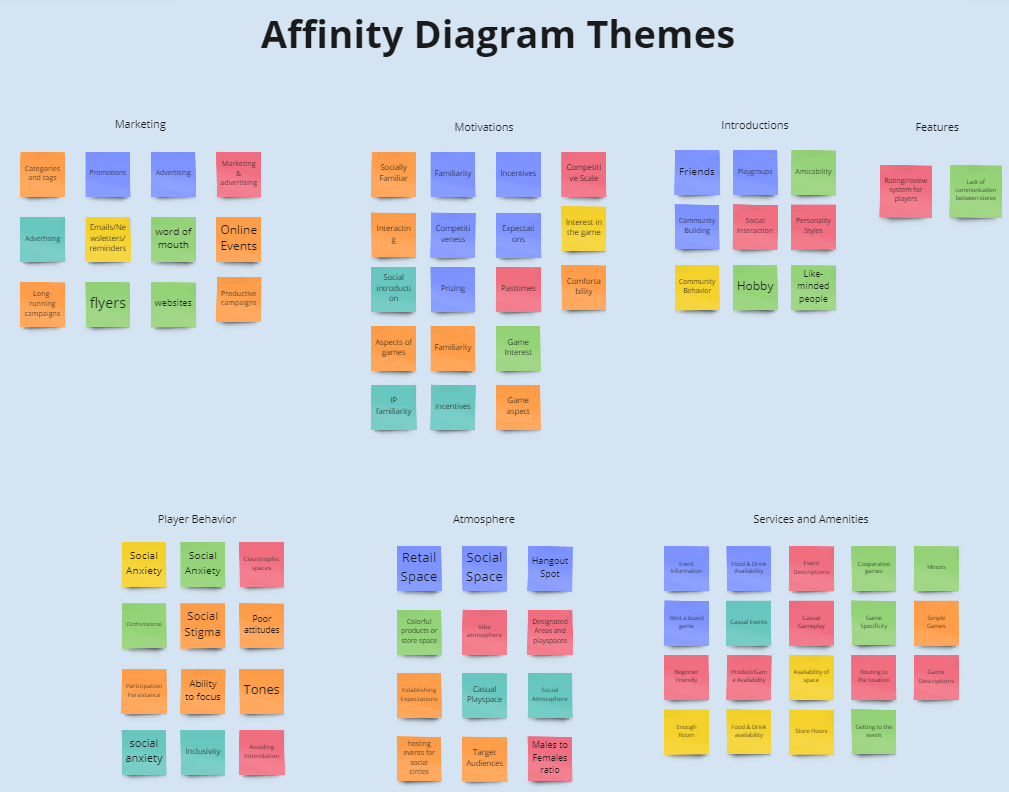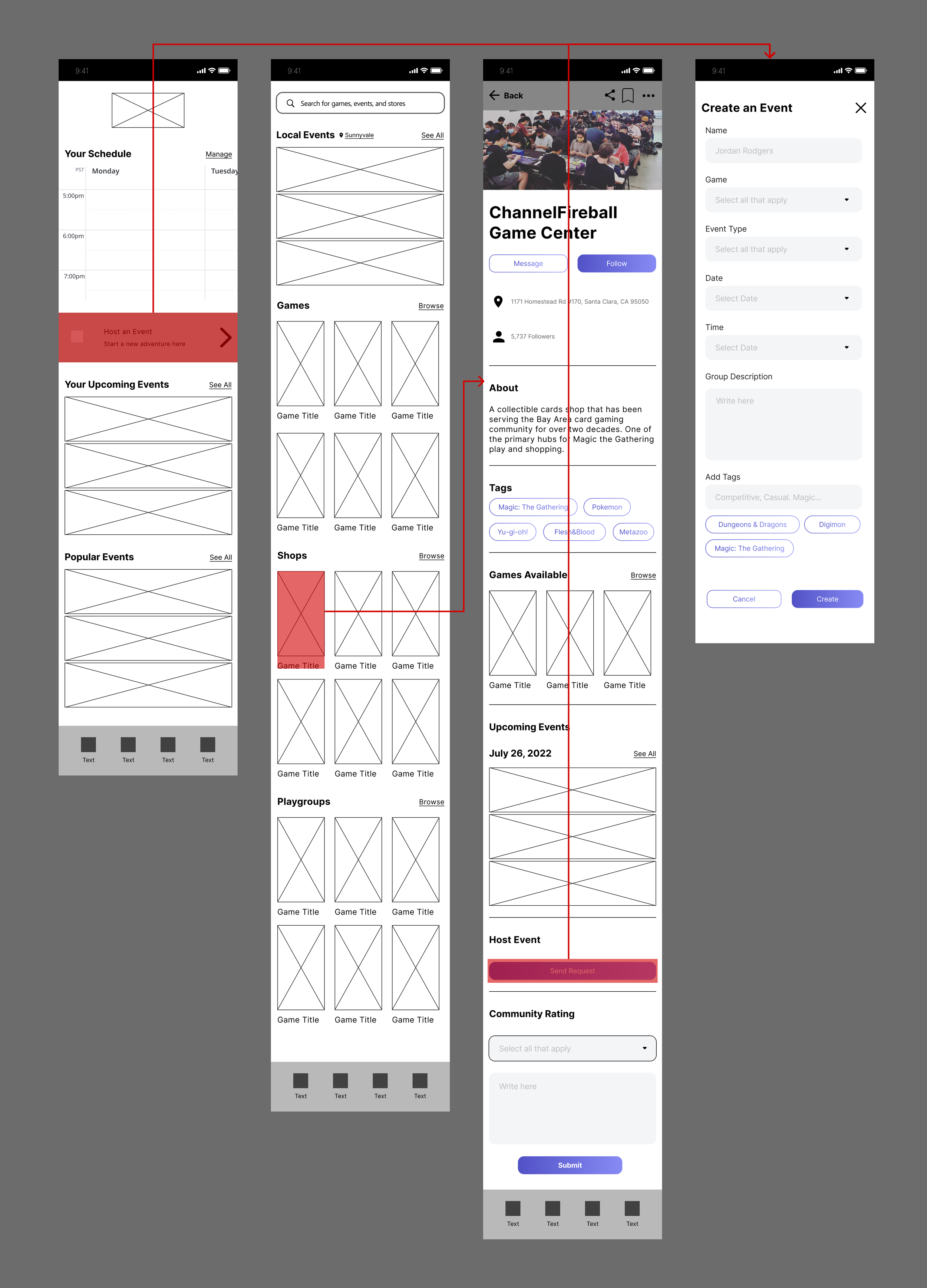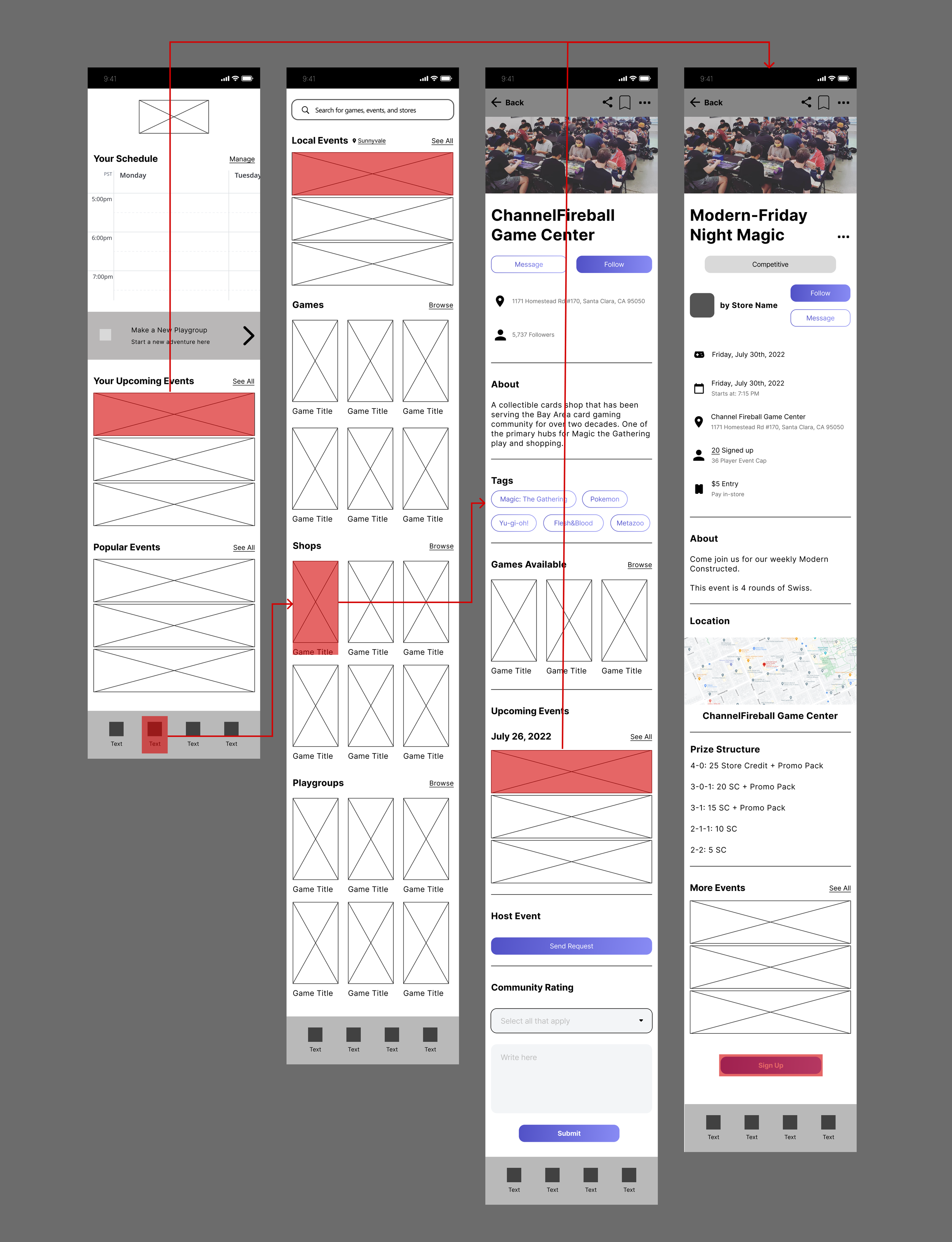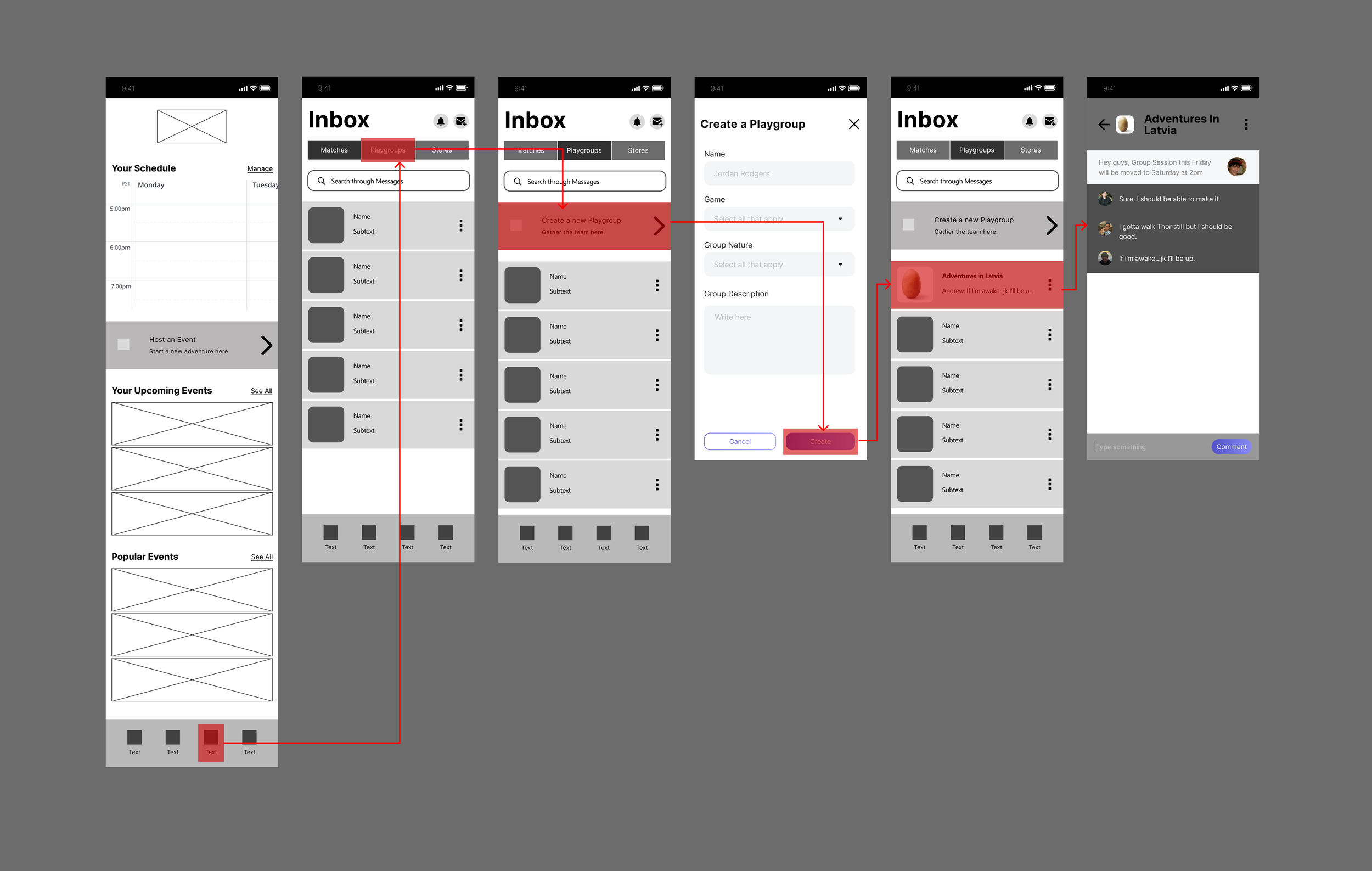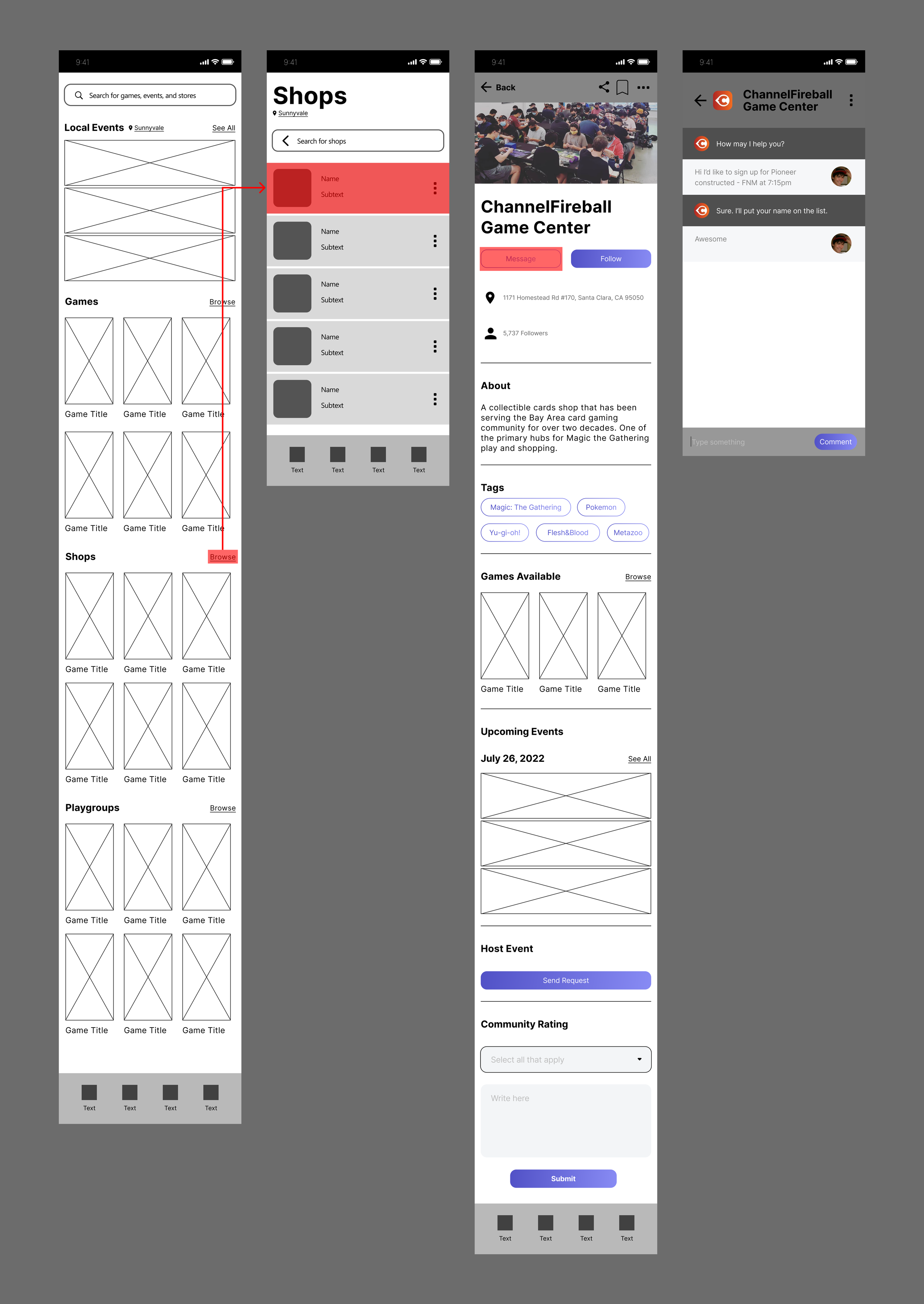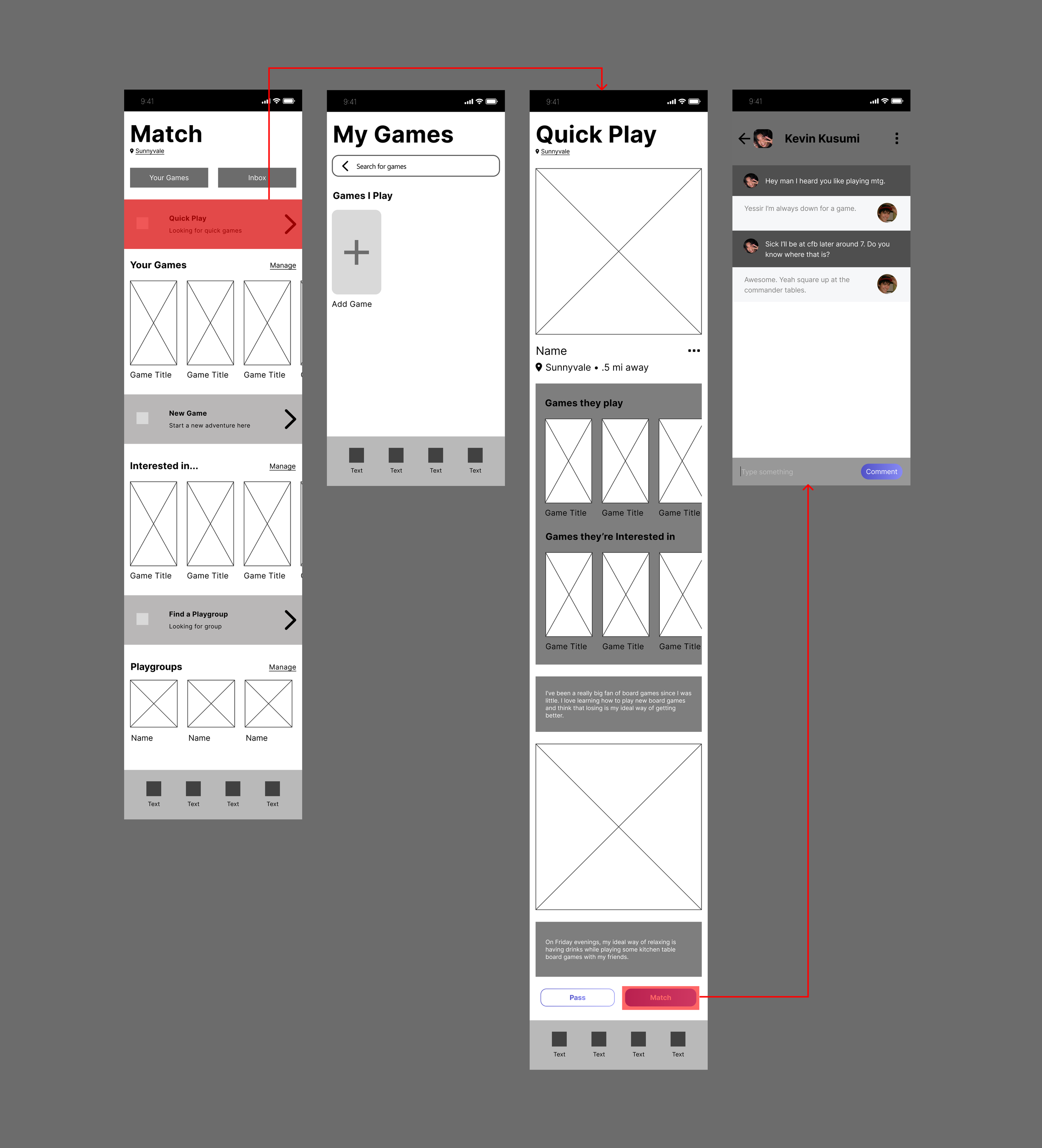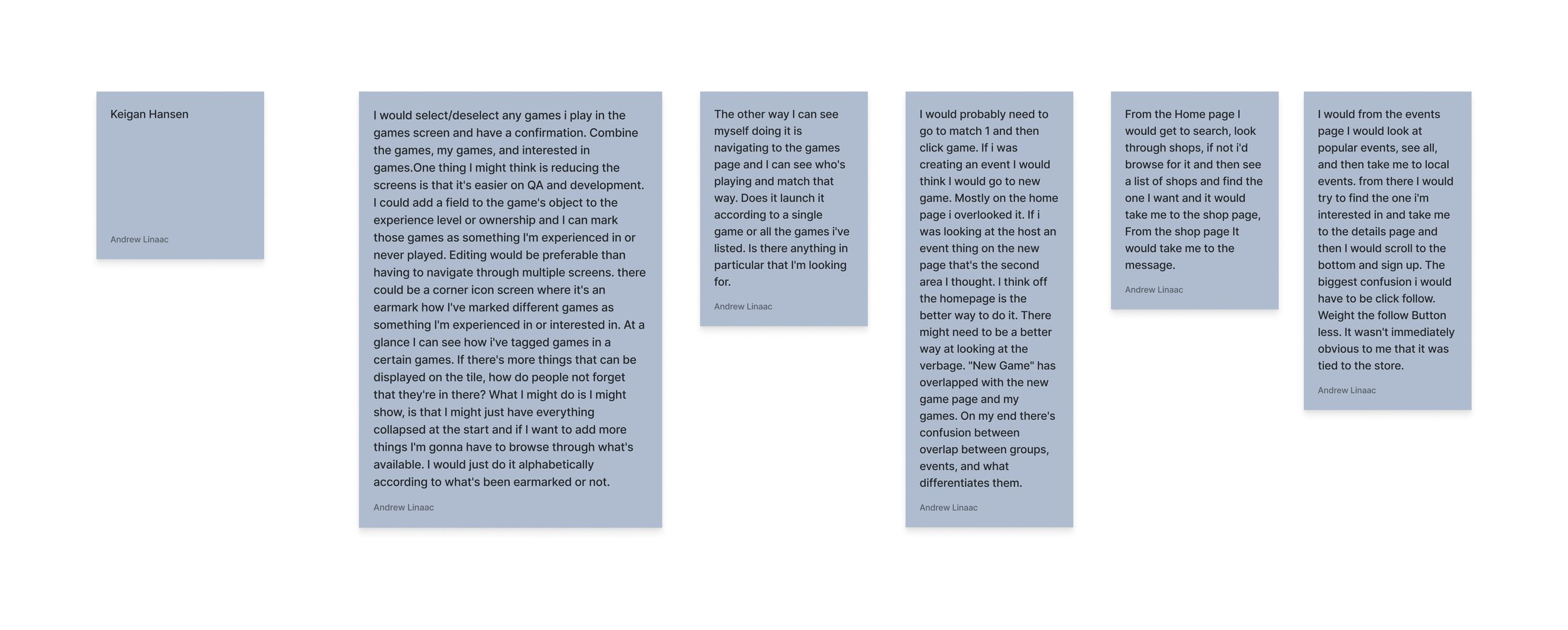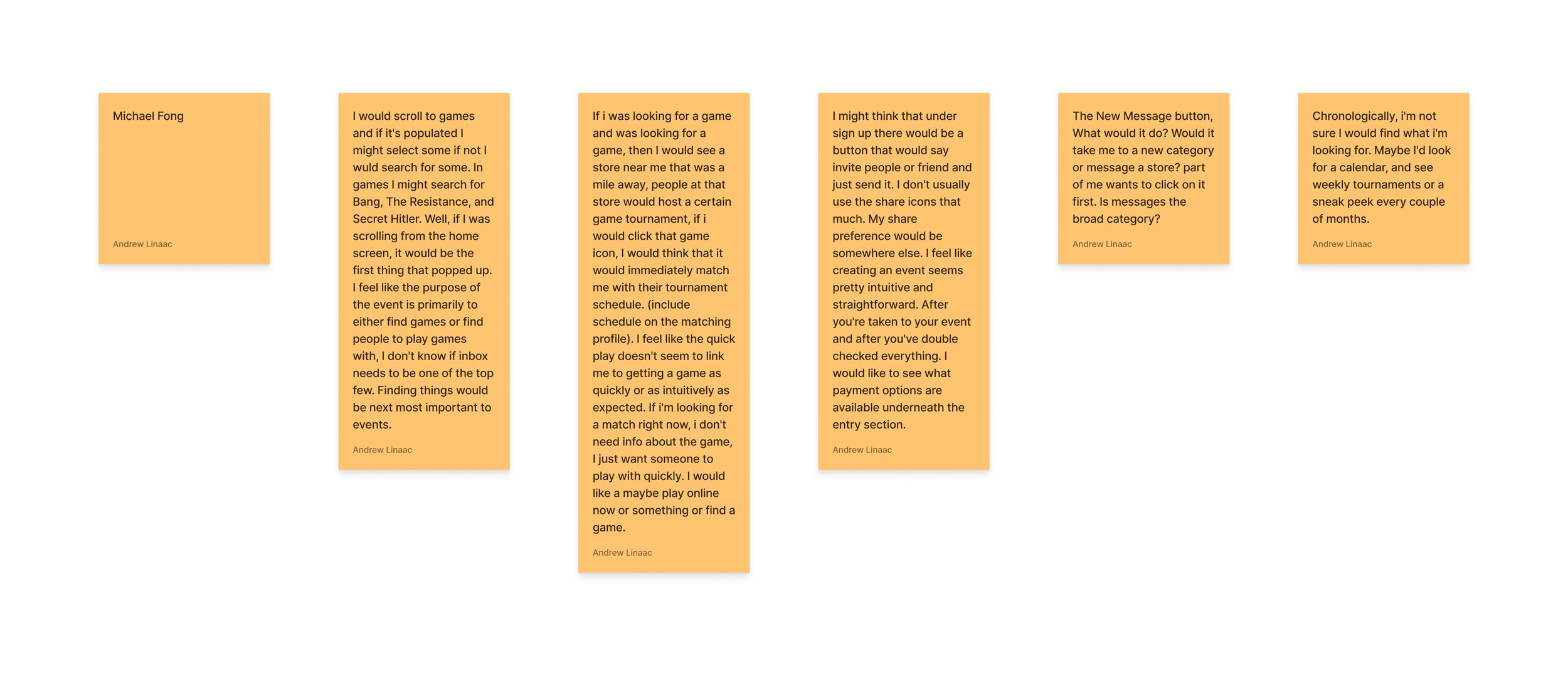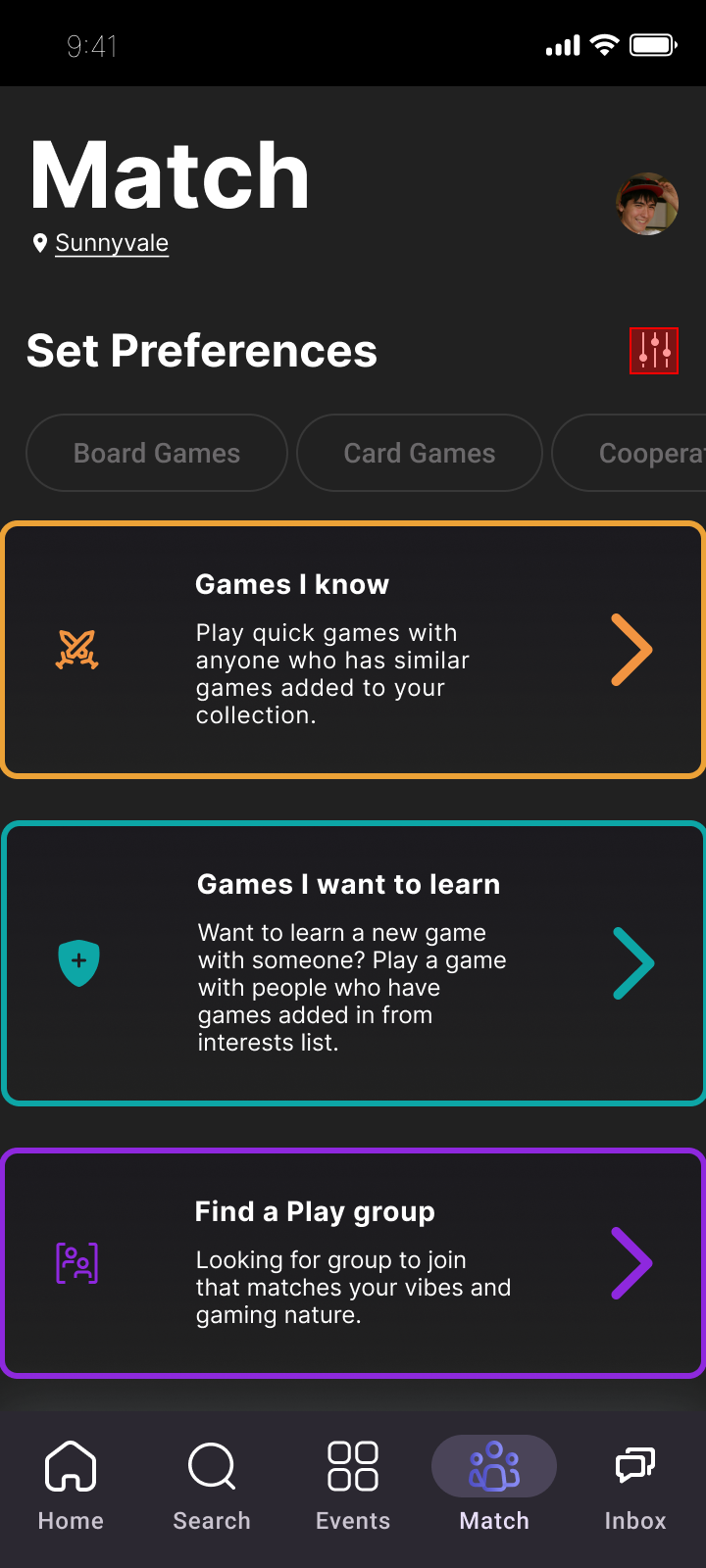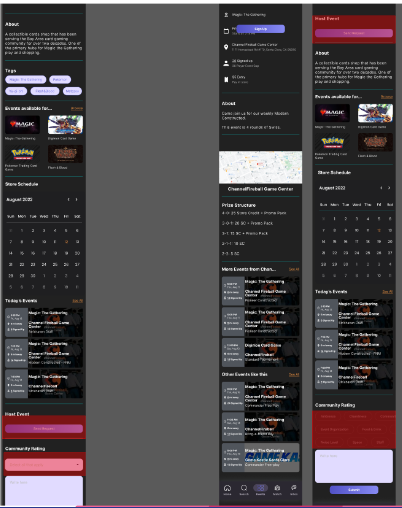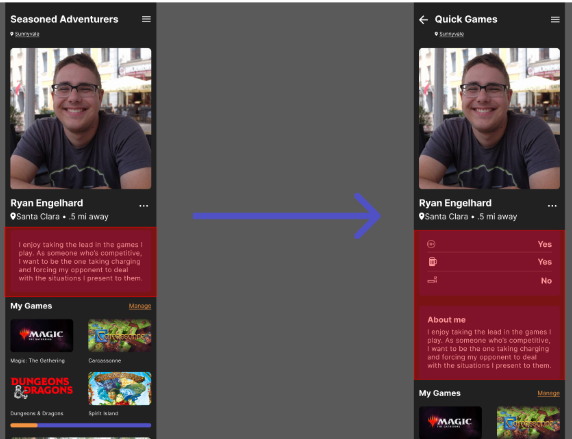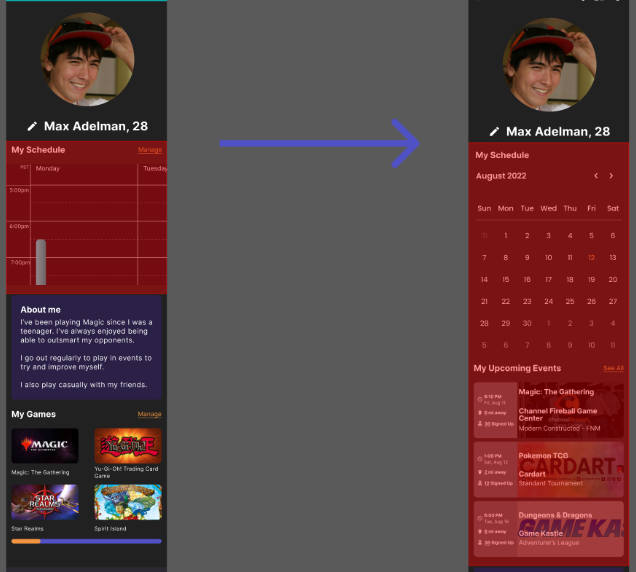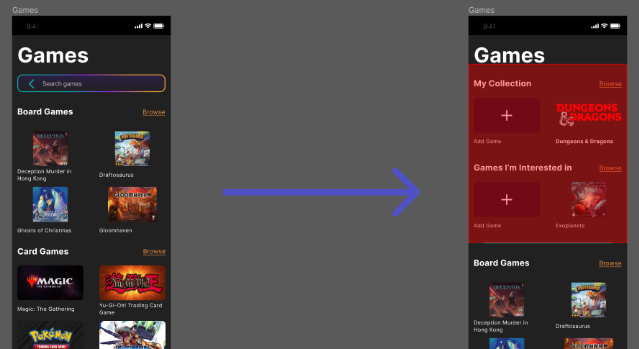
Boredgames: Connecting through Tabletop Games
Introduction & Problem Statement
Introduction: Tabletop games have exploded immensely in popularity as a major form of entertainment for consumers. Dungeons and Dragons, on its own, has 50 million players to date since its release in 1974.
Problem Statement: However, meeting up at hobby shops for events can be a pain especially if you’re looking to recruit new members for your next role-playing game (RPG) session. But what if local game stores and game event planners had a centralized social platform to help actively recruit players for better event turnouts?
Executive Summary
Centralizing efforts on how tabletop and board game enthusiasts play their games is key to help grow the tabletop and board game industry further. Boredgames is the social matching platform that aims to connect people through tabletop gaming events. Boredgames’ motivation is to address social anxiety going to board game events by aligning player interests with events, spaces, and other players driving event turnout rates.
What’s wrong with the way board games are played now?
Why is this problem worth solving?
To learn more about motivations and behaviors of tabletop & card game enthusiasts, 6 tabletop and board game enthusiasts were interviewed. Their responses were compiled into notable issues and further organized using Affinity Diagramming and developing user personas.
People-centered Challenges:
Experienced players can intimidate newer players from learning and playing new games
Mismatched social expectations can prevent new players from meeting others with their only common ground either being the social spaces they play in or the game they’re trying to play
Social familiarity can act as a social barrier as the spaces that host tabletop events require a new set of learned behaviors
Business-centered Challenges:
Small businesses can’t afford widespread advertising so they’re just not well known enough for people to discover them
They can be out of scope for peoples’ regional location
Addressing the people-centered challenges by:
encouraging people to connect with others through shared interests and levels of experience within the tabletop gaming hobby
introducing enthusiasts to other experiences either with new games or spaces to enjoy their hobbies in
Addressing the business-centered challenges:
supports small business and distributor growth through growing interests and sales
driving attendance rates of events towards the right audiences
support the growth and adoption of technology into this hobby
10M
Concurrent DND fans being delivered alone
$2.9B
Card & Board Games Market estimated growth during 2021-2027
$1.8M
In-app purchase (IAP) revenue in the Board Games project in 2022
Framing the Problem
Using the information that we’ve collected from these user interviews, these challenges were framed into How-Might-We (HMW) statements:
How might we alleviate social anxiety so more hobby shop and brick and mortar stores drive up their attendance turnouts?
How might we help stores and event hosts effectively plan events at these social spaces?
How might we emphasize the expectations of these playspaces in our social product platform?
Addressing Social Anxiety in these Spaces as a Solution
Our interviews taught us that social anxiety can come from having mismatched expectations regarding the play space of the event.
Marketing, advertising, and public information may set the expectations of events for people to view.
This shows that people are being driven to the right places to seek their interests but without the certainty that the people they’re looking to connect with are present.
One bad experience can ruin not only someone’s night but is an avenue that could carry the potential to enjoy a hobby better.
Tabletop and role-playing games are heavily rooted in a social nature and communicating what potential good there can be may incentivize people to attend past their social anxiety feelings.
Essentially, these experiences can be made better just by expressing the proper nature of the event, setting expectations for the appropriate audience to enjoy.
Providing Business & Consumers a Platform
The lack of communication between stores and the wide information being present online can actually prevent people from going to stores such that they either:
Don’t know that events exist
Providing these places and store owners a place to view and plan events can promote businesses in a synergistic way.
Don’t know that there are spaces that exist for these hobbies.
Event attendees and consumers make decisions based on what’s available around them.
Understanding Target Audiences
Users are concerned about having dedicated spaces to both casual and competitive gameplay
Being able to understand the community, the expectations of such, and the possible events that could be held may help event hosts, planners, and store owners effectively plan events catered for a specific target audience or draw newer people to their storefront.
In turn, store owners may also get a better understanding of their consumer base.
Catering to multiple or the right audiences may drive sales of products and bring up participant turnout by driving garnered interest to attendance
User Personas
Designing Boredgames
Establishing Boredgames User Flows
Users can do 5 main activities on this app:
Sign up for an event for a desired hobby/game
Create & host an event
Create a playgroup and send them a message
Communicate with a retail store
Match with someone for a quick game
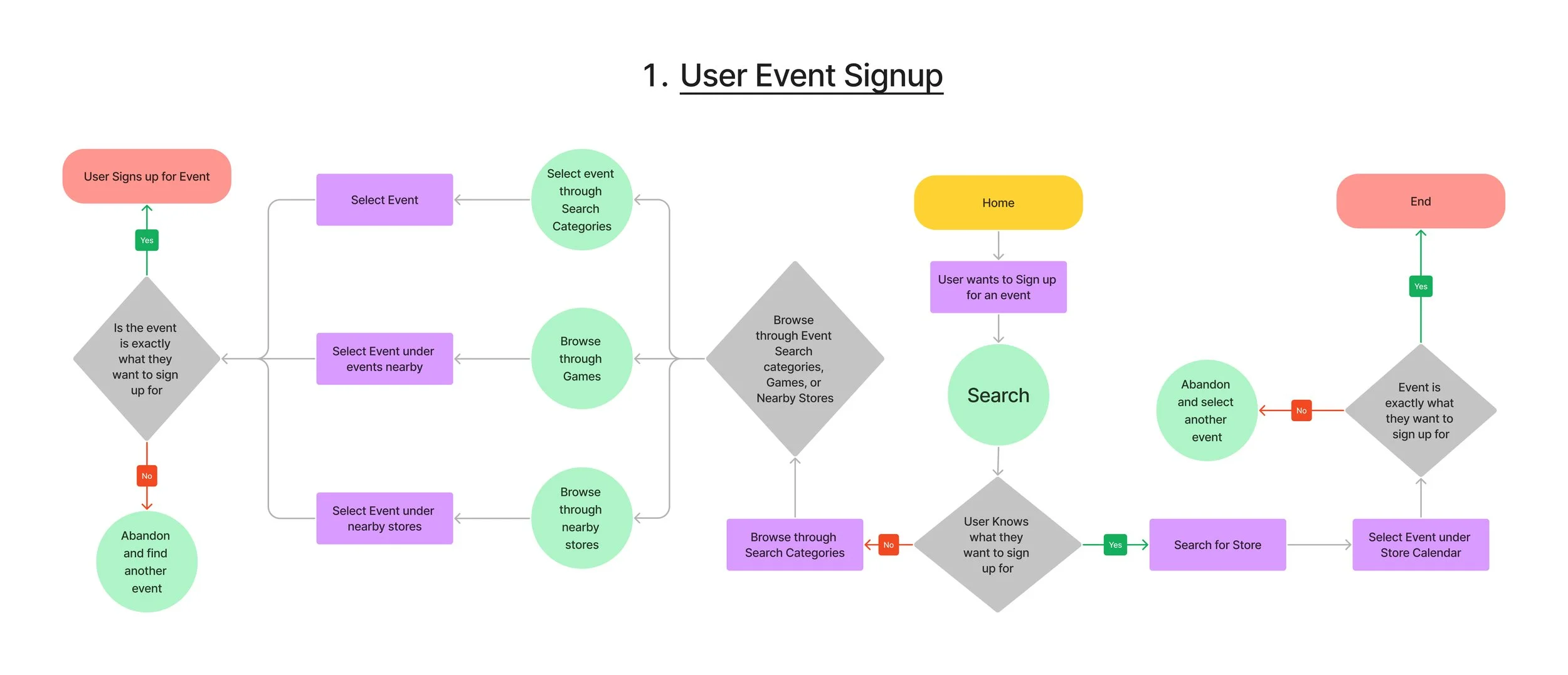
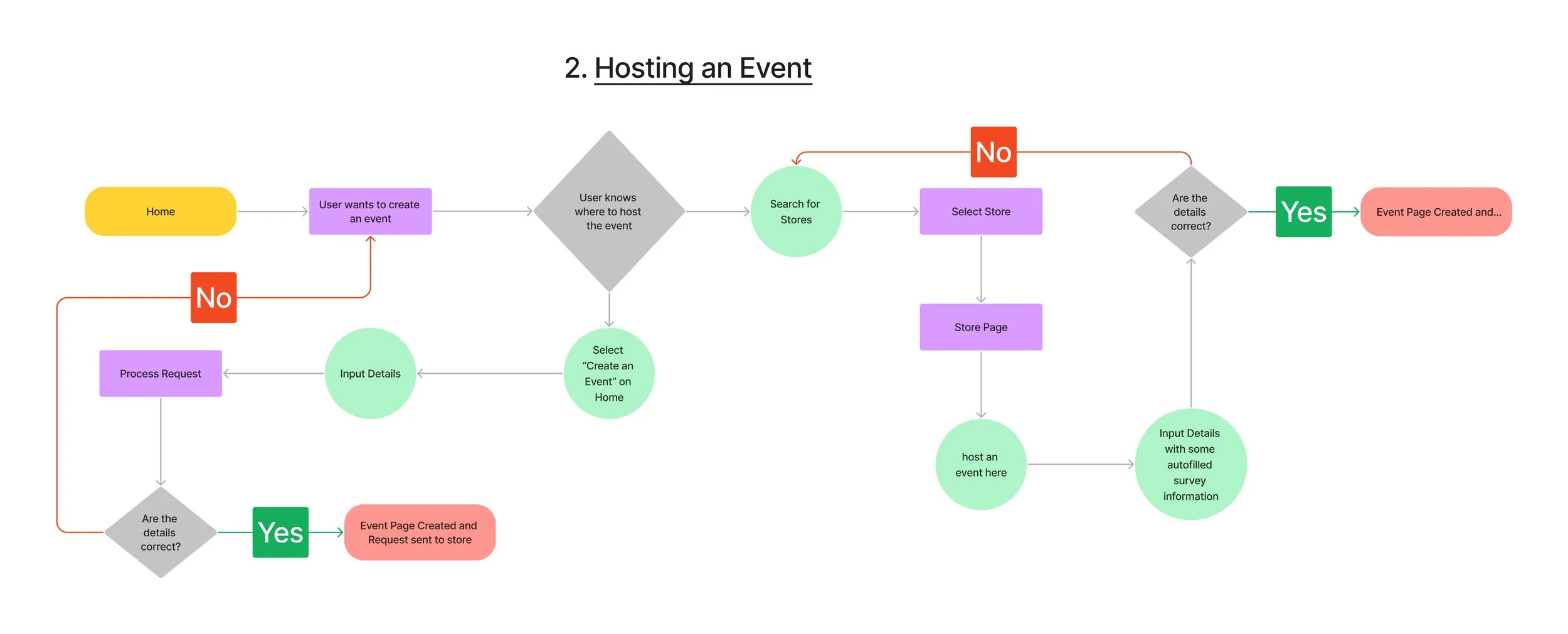
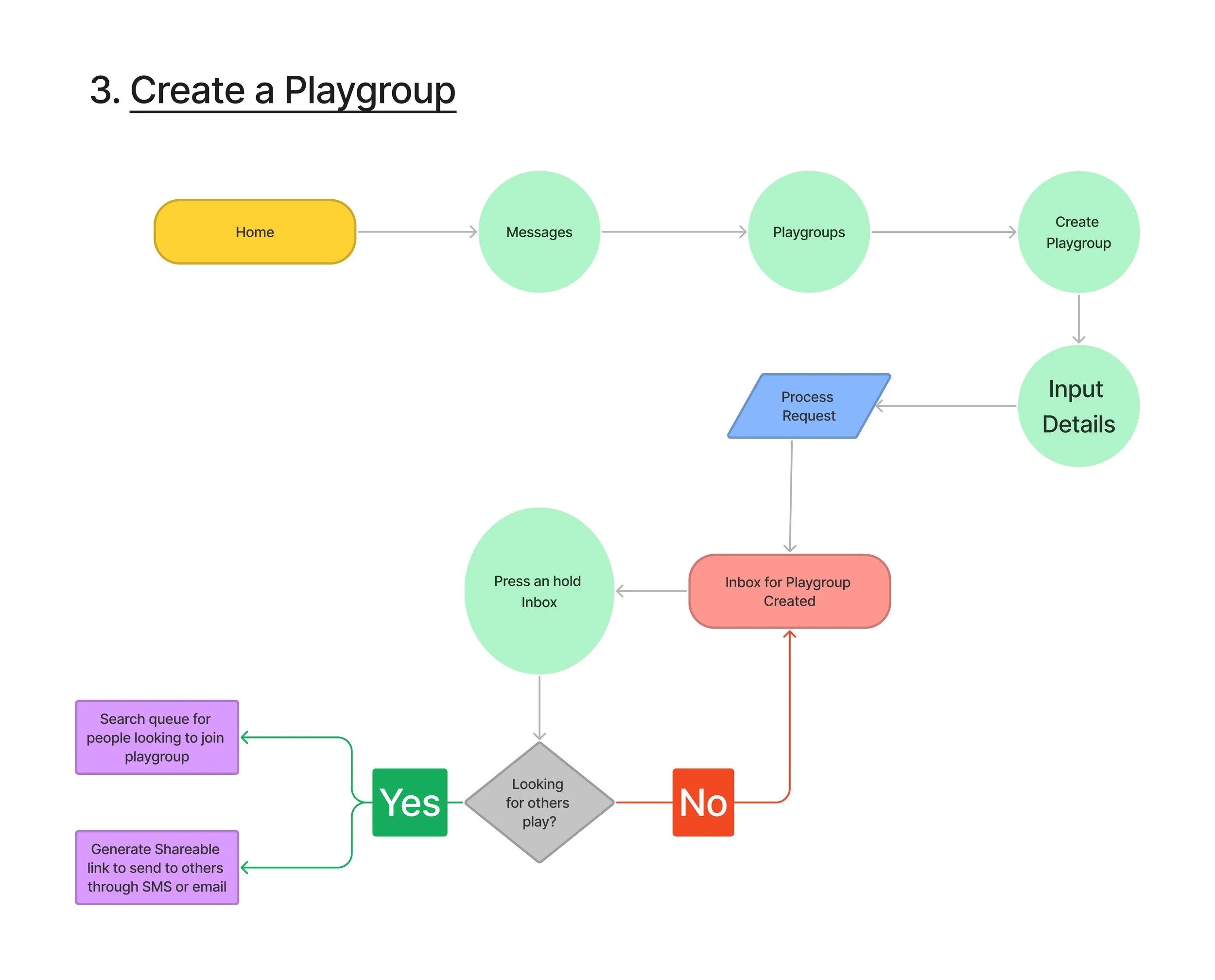
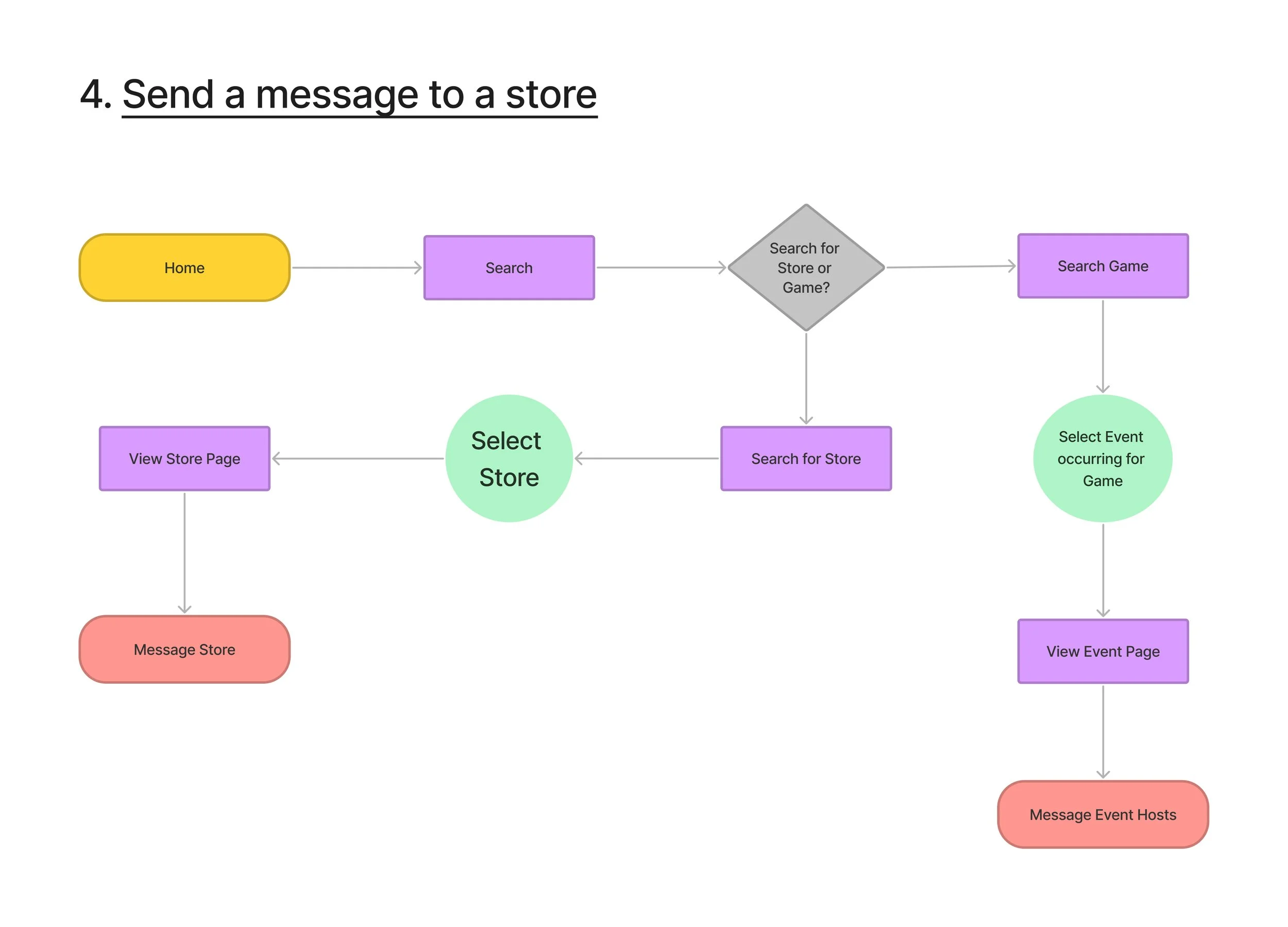
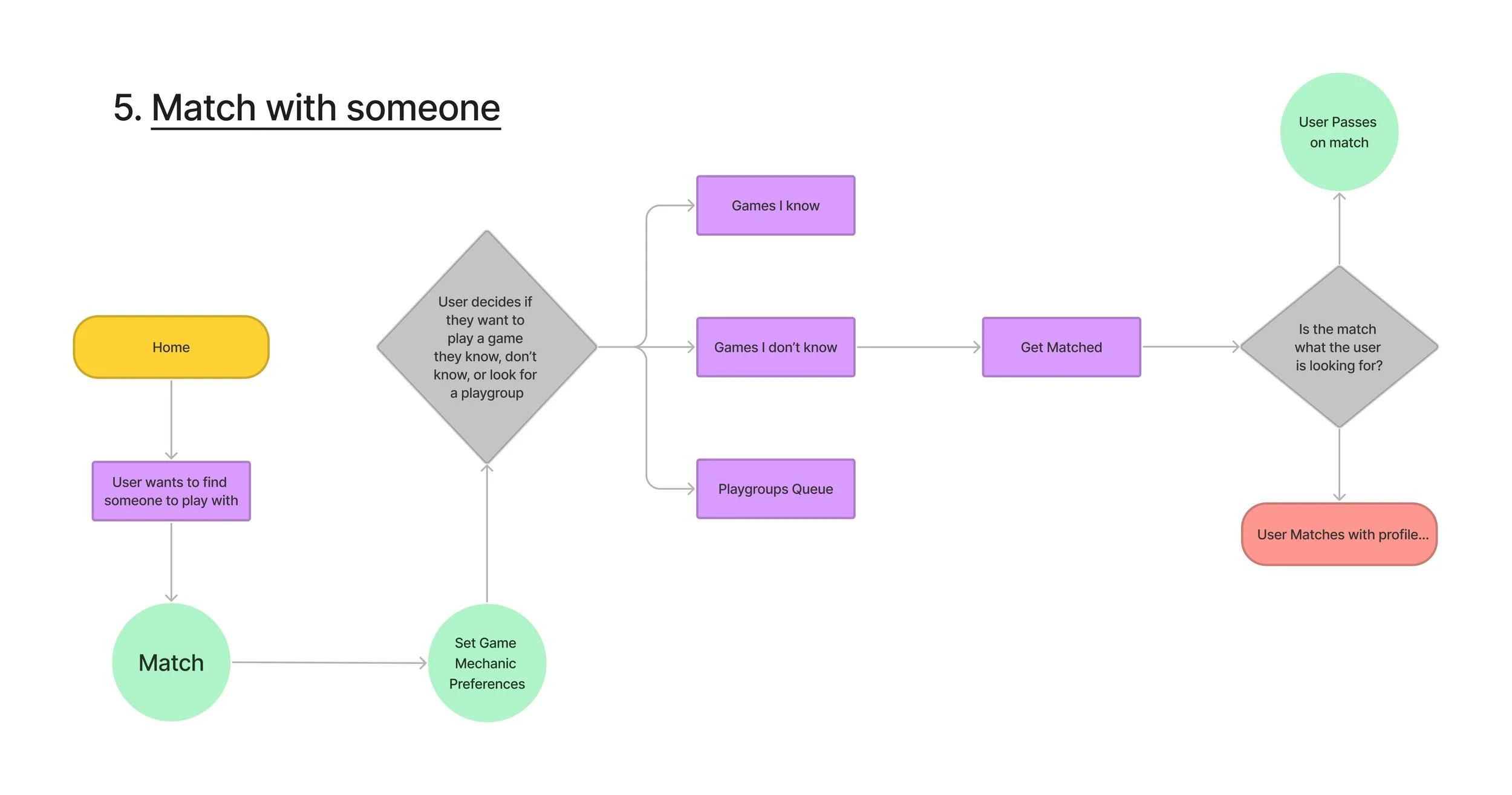
Setting up Wireflows and Developing the Low-Fidelity Wireframe
Link to the low fidelity wireframe kit available here.
Guerrilla Usability Testing
5 people who fit our target demographic were recruited to test this prototype and their experiences were recorded to help guide further design choices for Boredgames’ user interface.
Research Questions to focus on:
What prevents users from showing up at a local game store or place for the event/game they want to participate in?
How do people usually find events or people to play tabletop games with?
What type of information do they look for when they conduct a search?
Personalizing Boredgames
The Material 3 UI Kit and a royalty free UI kit by Bruno Phan, were used to create the aesthetic for Boredgames.
Second Usability Test & Incorporating Feedback
To attempt to validate these design choices, 5 more participants were gathered to examine their experiences and collect feedback.
A pipeline was made using Notion to organize suggestions and feedback to help guide the iterative process.
Notion board available here.
Full test results available here.
Reflection
My experience working on Boredgames emphasized a key difference in working on social products in iterative development. What I’ve learned from doing this project is that functionality and feature design is key in developing a good unique product that addresses the user problem we’re trying to solve.
In regard to Boredgames, the product offers board game enthusiasts a platform to seek social spaces, events, and others to play with. A problem I ran into during the design process was giving it its unique quality. Originally, it was intended to just be a location search app, but attaching the matching quality made it much stronger as a solution to address the social barriers that board game enthusiasts faced. This idea is meant for people to connect through the main idea that anyone can create an event and be connected by the activity of playing a tabletop game.
Moving forward, I would want to test its scalability in order to see its potential as a product on the market.
Project Information
-
Duration: 90 Hours.
-
I worked on this project as part of Springboard’s Capstone 2 project in their curriculum.
I performed the roles of UX Researcher and Designer under the supervision of mentors Matthew Weprin, Senior Manager of UX Design at Workday, and Lily Huang, Senior UX Designer & Educator at Questrade Financial Group
-
○ Questionnaire/Survey to assess demographics
○ User Interviews (5) to understand pain points, behavior, and overall thought process
○ Usability Testing (15) to test and iterate
-
○ What prevents users from showing up at a local game store or place for the event/game they want to participate in?
○ How do people usually find events or people to play tabletop games with?
○ What type of information do they look for when they conduct a search?
-
I made and sent out a survey to different board game communities both online and in real life.
Out of 61 responses, I’ve found that:
The representation of genders is:
○ 80.3% male
○ 13.1% female
○ 3.3% Prefer not to say
○ 1.6% Agender
The representation of age is:
○ 8.2% 16-24 years old
○ 65.6% 25-34 years old
○ 21.3% 35-44 years old
○ 4.9% 45-54 years old


